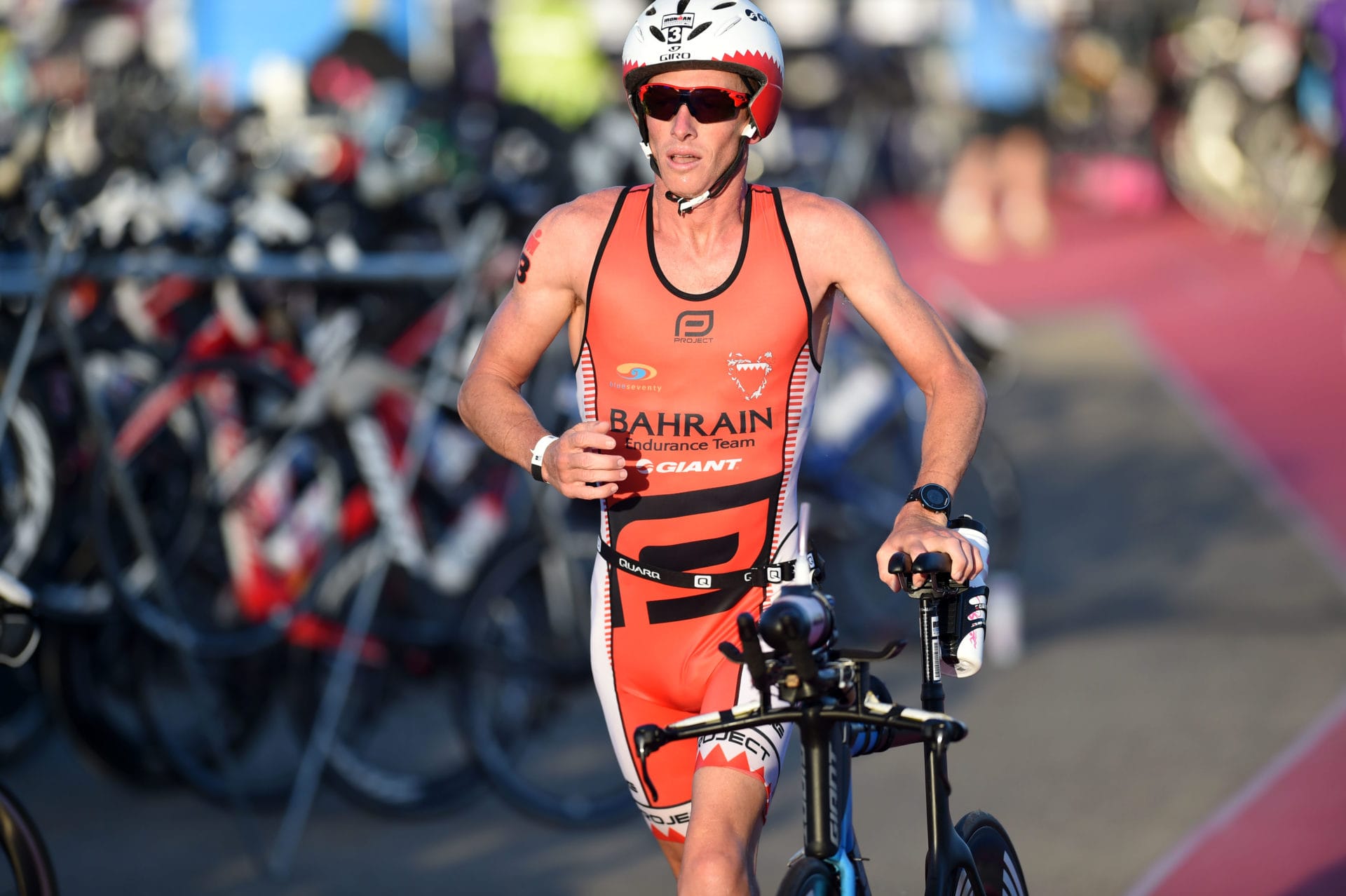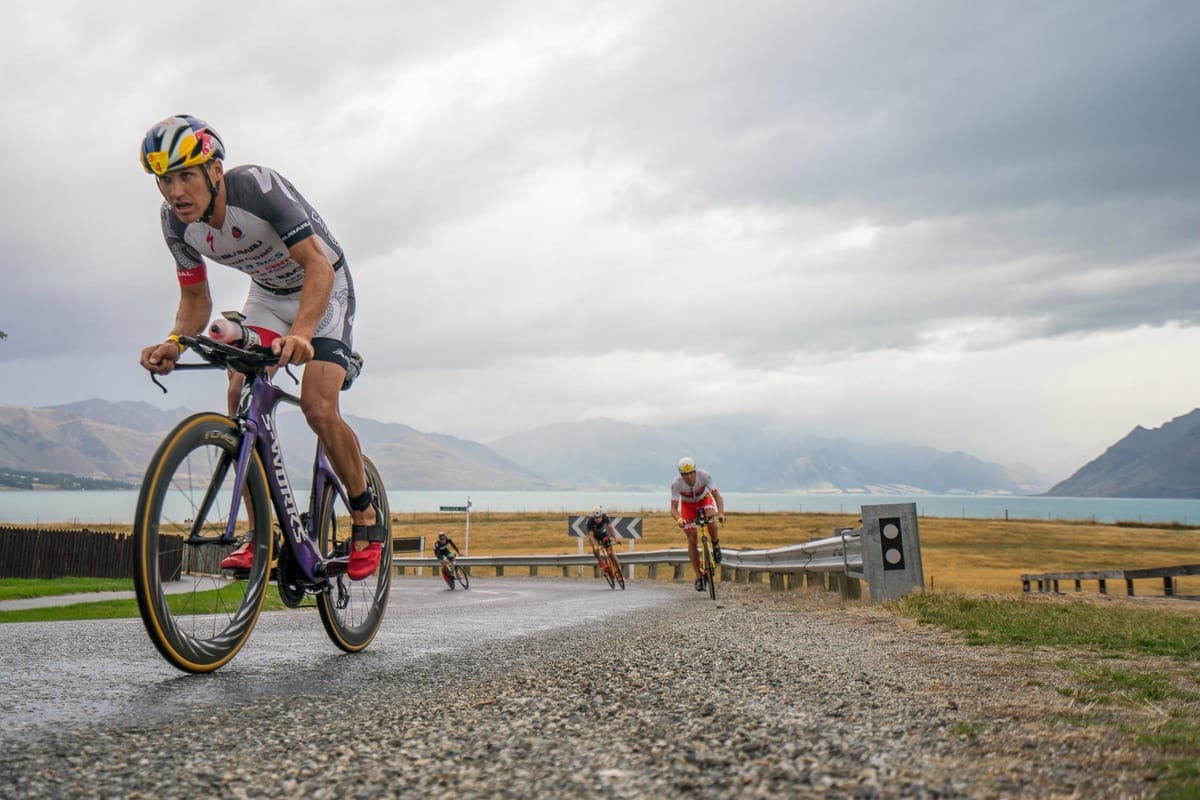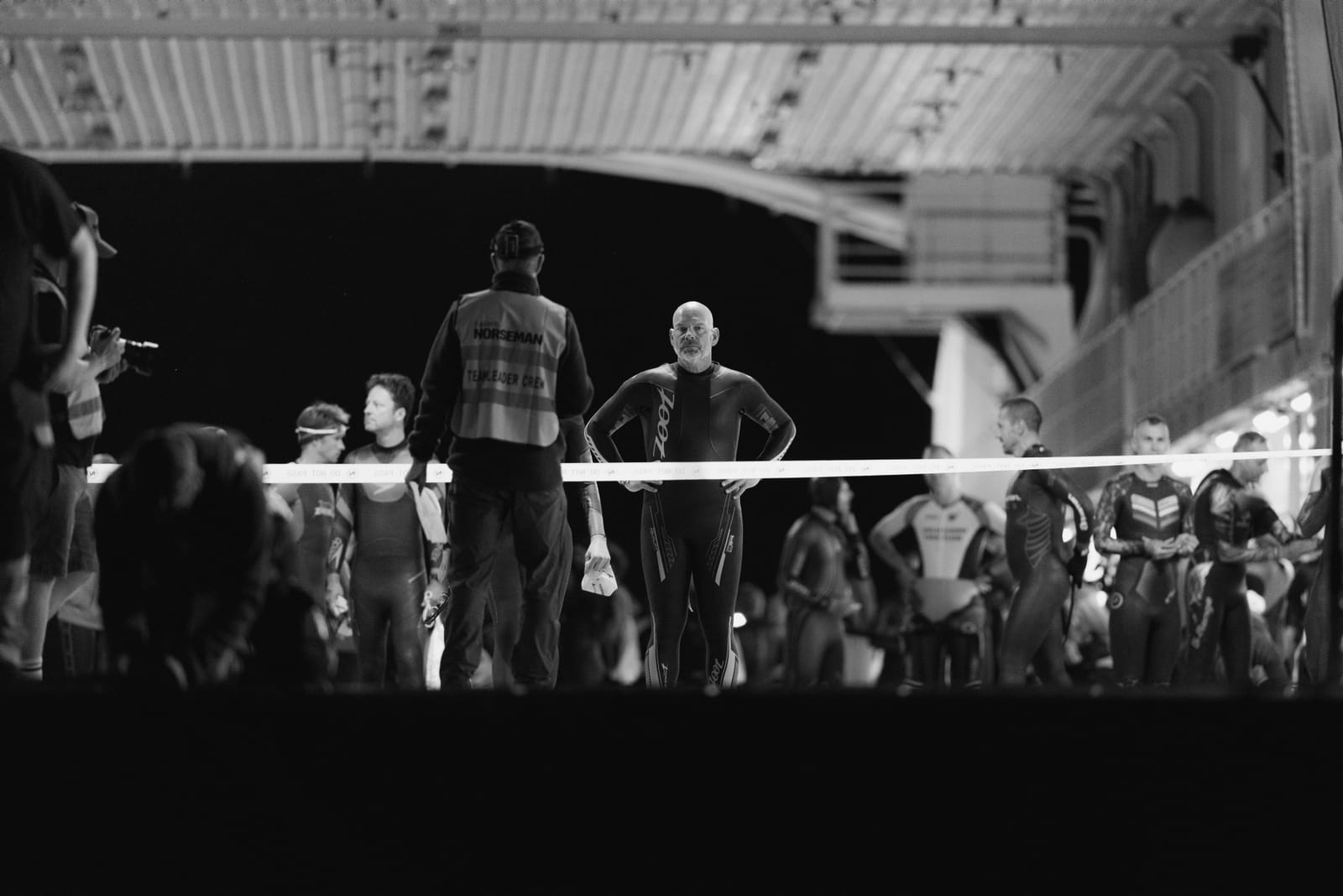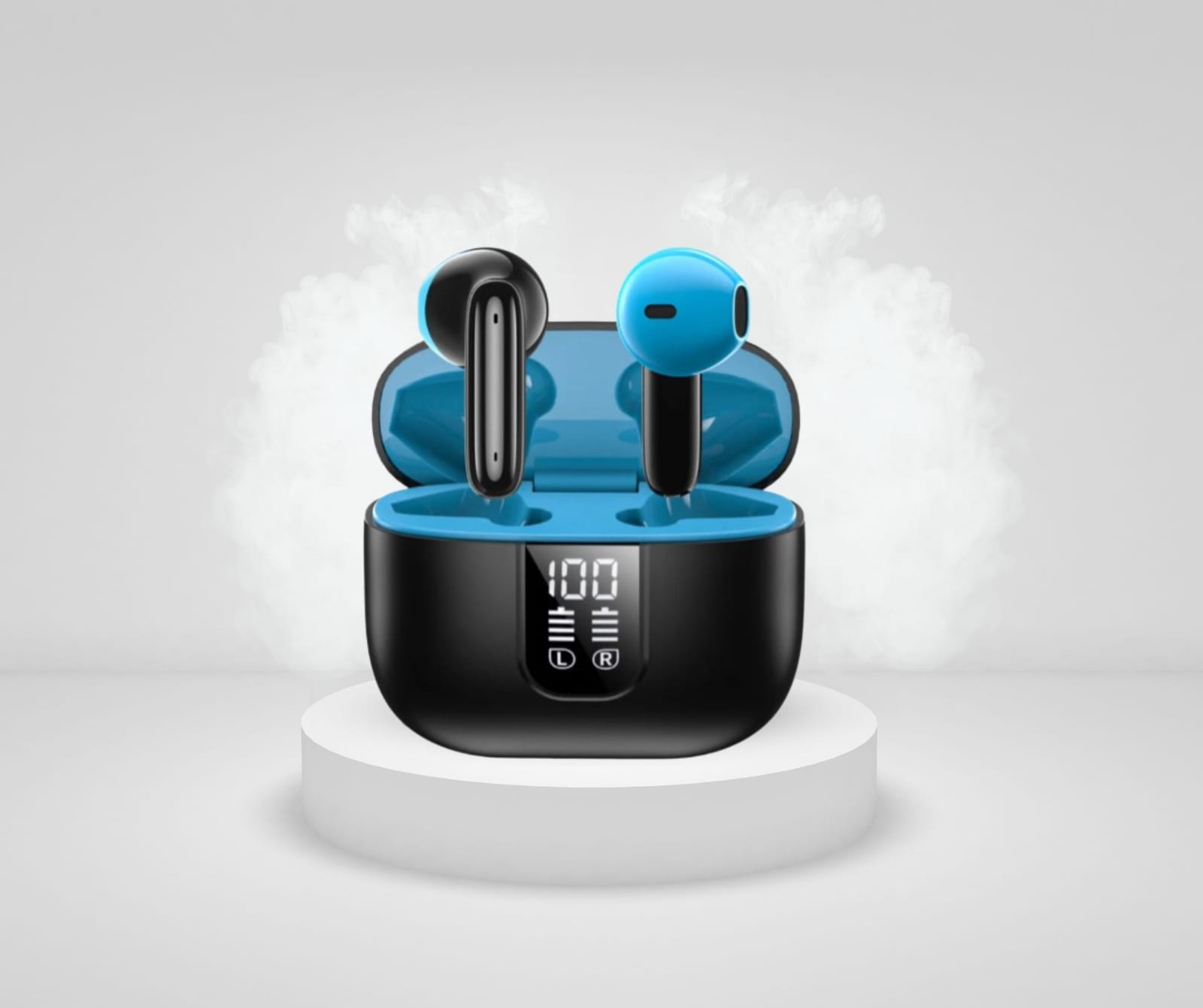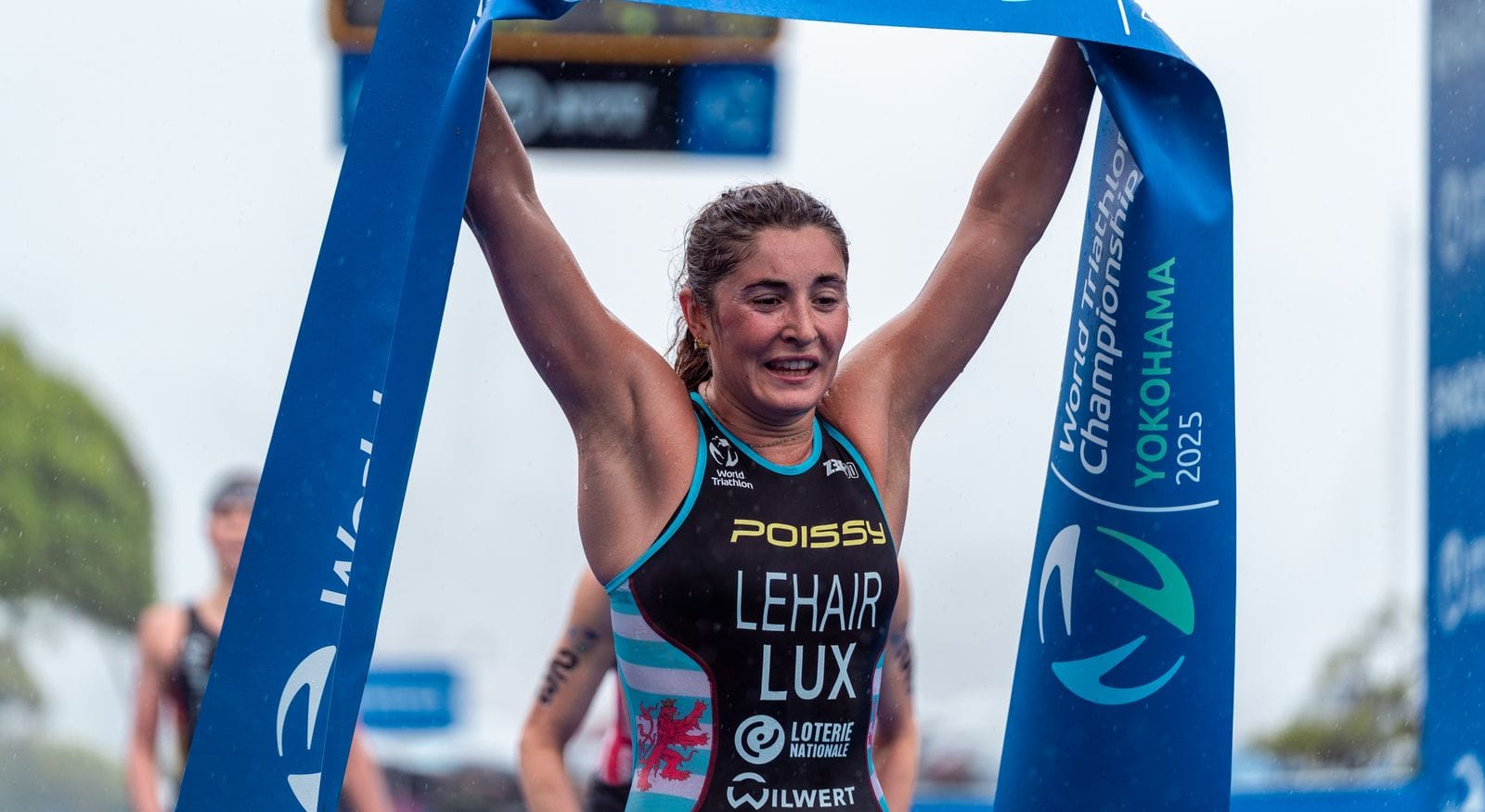Born in Warrnambool, growing up in Portland and cutting his teeth on the sport of triathlon at Eastern Beach in Geelong, Luke Bell is one of the best athletes to come out of Victoria’s west.
The IRONMAN veteran of more than twenty years, whose credentials include four top ten finishes at the IRONMAN World Championship, an Australian and North American IRONMAN championship and twenty wins across the globe at IRONMAN and IRONMAN 70.3 distance, he knows a thing or two about getting the job done.
The father of two has scaled back his racing to concentrate on coaching and a new role at a Melbourne private school looking after athletics, cross country and triathlon but he still finds time to squeeze in a few races in Asia and Australia. This year “Belly” is making a welcome return to Baker Heart and Diabetes Institute IRONMAN 70.3 Geelong (17 February) to give the young blokes a hard time and show his support for the local event and longtime ally, the Baker Institute.
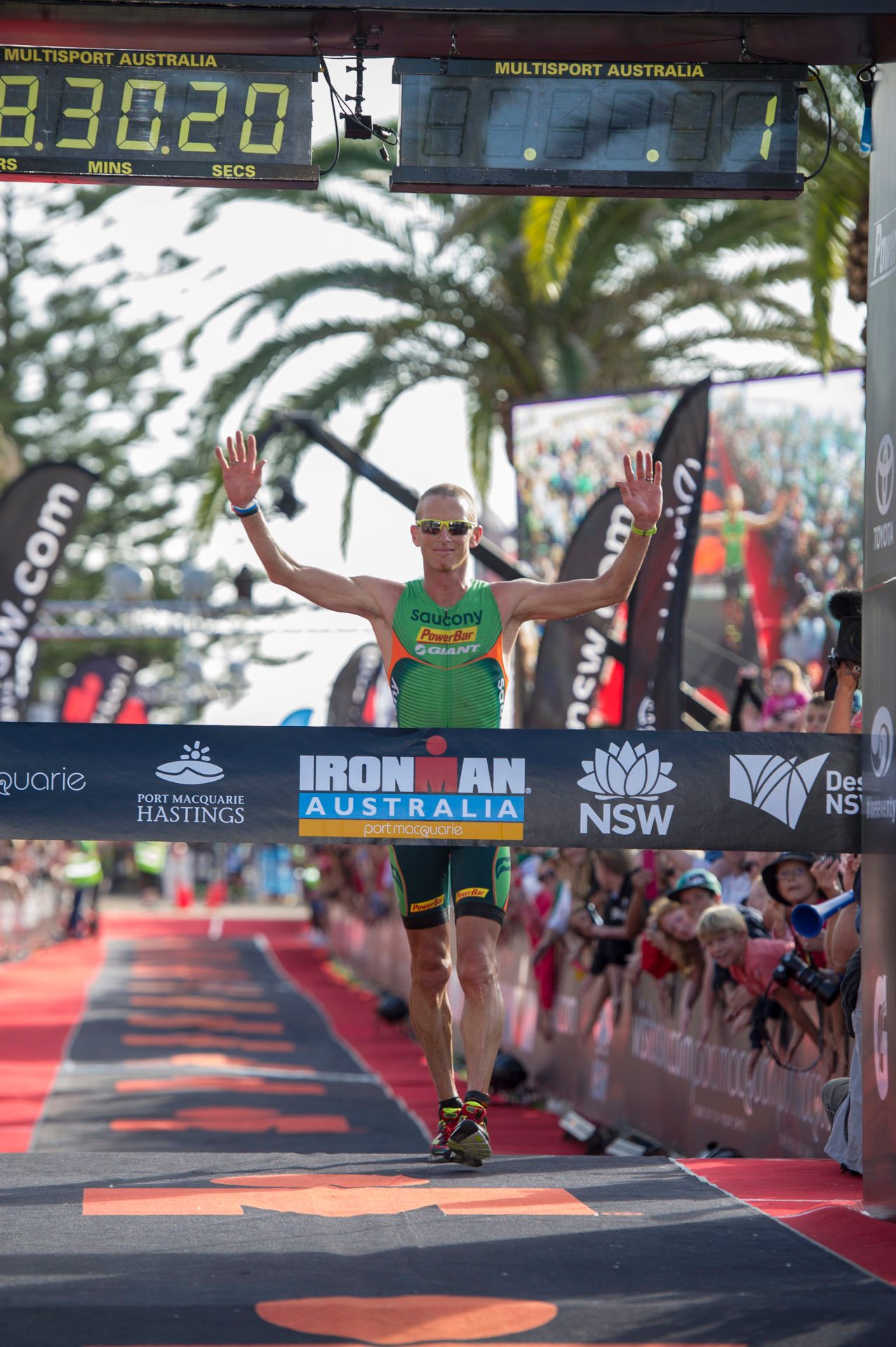
“These days it is all about more enjoyment and new focuses. I have always loved the sport and I still do so I am happy to get out on weekends and mix it up. I still ride with Mitch Anderson and Damien Angus and all those guys and we still try and let our egos belt each other up. So, I get some hard sessions there and I try to get down and run with Craig Mottram’s group when I can and I have swum with the same swim squad for 20 years.”
“It more just fitting things in around other commitments and I do have a 20 year training base behind me. I still go into races trying to podium and do the best I can, but you realise you are not doing the same training the other guys are. So, there are different expectations, but it doesn’t mean the competitiveness isn’t there. I have been lucky enough to be a good swimmer so I am always in the race and at the pointy end. I can still get out of the water with the lead group and still ride with them. These days it is about managing the knobby knees but they have been pretty good of late.” he said.
Luke got into IRONMAN racing as a youngster at university, but said it wasn’t by choice.
“I just wanted to do one and I did quite well, so I fell into the sport and was lucky. I tell the young guys now, ‘Do as I say and not as I do’ because by the time I was 30 my body had been through the ringer. My advice is to stay in the shorter stuff, do the speed as much as you can. Defending champion Sam Appleton is a perfect example, he hasn’t rushed into doing IRONMAN too quickly and has had a great career out of IRONMAN 70.3 racing. His body is not worn out and he can step up into IRONMAN when he is good to go and his body is strong enough to do it.”
Part of Luke’s “maintenance program” has been to tap into the expertise of the Baker Institute throughout his career, from a friendship he struck up with Associate Professor Andre La Gerche many years ago.
“I first met Andre in Melbourne when he was doing IRONMAN, so I have known him for close to 20 years. So, whenever he reaches out and asks if I want to be involved in a study at the Baker Institute I am all for it. I know I am getting a full analysis and you can find any underlying issues that may or may not be there. Every four years or so I would get a really good screening from him, albeit it is part of a study but the flip side is that one person helps the other. I get my full heart analysis and I get to walk away with some peace of mind.”
“You only have one heart and you want to take care of it. If you injury anything else and you can go about your life as per normal but you may not be able to race any more. You injure your heart and it is a different story. Having Baker Institute as the title sponsor in our sport is a pretty awesome thing and it will open people’s minds to the fact that it is a great sport to be involved in because it keeps you physically active but also be mindful to do it in the right manner and train up for these events.”
“You can live your whole life and be unaware of small arrhythmia or issues and not even know they are there, but they only need to pop up once when you least expect it. Being fit doesn’t mean a thing. It just means you can go a bit quicker. Fitness doesn’t make you less susceptible to tachycardia, arrythmia and age is not necessarily a protection either. A heart condition can be genetic or something that has developed over time.”
“The benefit of the community having access to the amazing resources of the Baker Institute is that you may find out something simple but you know you can managed. It is infinitely better to find out and deal with it, rather than find out in a more dramatic way,” Luke said.
First race of the season, Luke is pumped up for a good one in his old stomping ground.
“Whether it is the cycling world champs, or the ITU events Geelong has always been the center of the action. I used to duck down and see the likes of Peter Robertson racing around the foreshore. It is a wonderful little amphitheatre and when the weather is on it is a pretty spectacular place to race. My first races down there were twenty odd years ago. It is a good spot with a good history and has to be one of the earliest venues for triathlon in Australia.”
“Hopefully the form will be good enough to give the young guys some competition but it is just down the road and we have a few athletes there. It is always good to be involved in local races. I will see who turns up on race day and deal with it,” the wily veteran said.


